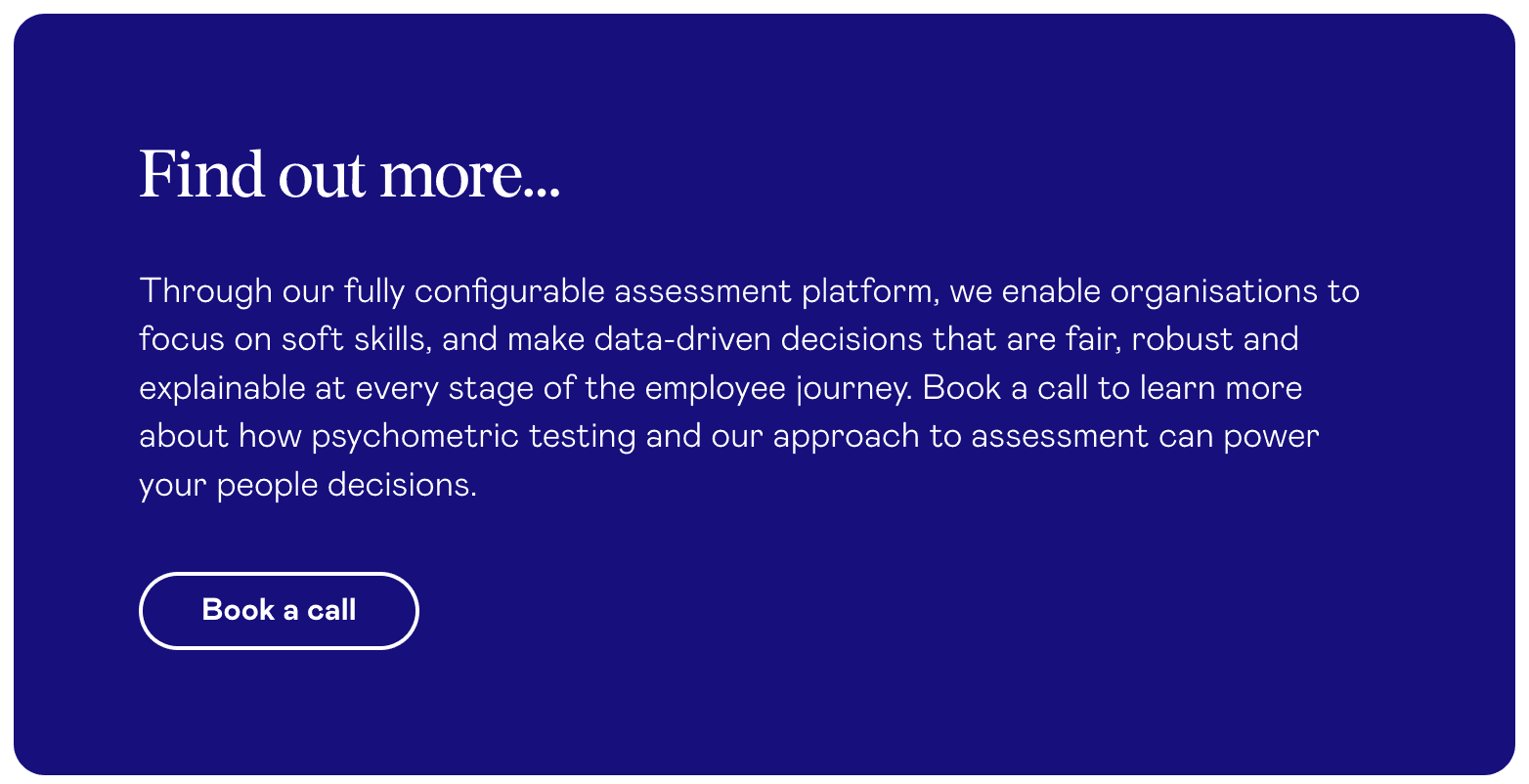Evaluate graduates and apprentices based on their skills and potential | NEW Early Careers Assessment
5 things graduates want from employers post-pandemic

The pandemic has had a significant impact on student experience and expectations about work. In this blog, we will share with you five things that graduates want from employers in the post-pandemic world of work. Research by Bright Network found that 85% of graduates have felt under more pressure around careers due to the impact of COVID-19 and that 77% of students feel they have struggled to connect with employers this year. Only 42% reported feeling ready for the world of work.
With reduced confidence levels amongst the graduate population and the emergence of hybrid working, what can employers do to meet the expectations of the class of 2021? As assessment experts, we help some of the world’s largest organisations to select the best early career talent for their organisations.
Here is our advice on how to meet the changing expectations of the class of 2021.
Judge graduates on potential not their past
In May this year, the UK Government announced that students could return to campus and to in-person teaching. Despite this step towards normality, for some young job seekers the damage has already been done. After more than a year of disruption, the class of 2020 had graduated remotely, and the class of 2021 were preparing for their first steps into the world of work having missed out on vital work experience and learning opportunities.
The playing field for early talent is not level and so it’s more important than ever to use assessments which are based around potential to do well in a role, rather than on past education or work experience. Pre-employment tests that are designed to assess for the behaviours and competencies required for a role will yield far better results than looking at academic record for example. As Sova, we design blended assessments that combine tests such as ability to learn, personality, behaviour, potential and motivational drivers into one short and engaging assessment.
Build development and upskilling in from the outset for graduates
95% of student members of Bright Network say that they want to be upskilled directly by employers. Graduates may well feel they have missed out on some skills development over the past 20 months and so there is an opportunity for employers to offer candidates constructive feedback and development as part of the application process.
Firstly, ensure that the hiring process (even if you are working with high volumes of applications) allows for feedback to be provided to each candidate. Using Sova’s platform, the TA team or hiring manager can choose to share feedback including strengths and areas for development at any stage of the assessment process. This means that candidates who are not successful still receive some developmental feedback. Secondly, use the data collected during assessment for recruitment to build a picture of development areas that can feed into ongoing training and development. At Sova, all assessment data is stored in one place, making it accessible and easy to use by line managers and L&D teams.
Design assessments around values alignment
We know from our own experiences with clients that post-pandemic, more young people are looking for work that aligns more closely with lifestyle ambitions and values. Bright Network’s research confirmed this, with 61% of student members saying that a good work-life balance is more important to them then reward. The ability to convey your organisation’s culture, values and work life is critical during the hiring process and a realistic job preview is an effective way to bring your organisation to life.
In a virtual setting consider how you can immerse candidates in your organisation? What does a typical day in the role look like? Who are your key leaders? Who would candidates be working alongside? At Sova, a realistic job preview is something we work on for most of our graduate programmes. Using a combination of video, interactive screens and two-way interview sessions we can paint a picture of the role and of your organisation, allowing candidates to decide whether it will be a good match for them.
Make equality and fairness inherent in your hiring process
Almost half (48%) of graduates will actively research a company’s commitment to diversity before applying, with only 8% saying it’s something they don’t consider at all. A fair, equitable recruitment process is an important statement for companies to make and an opportunity to tangibly move the dial on diversity in a way that can be demonstrated to graduates. This is especially important at this time as confidence levels have dropped across the student population and those who attended a non-selective state school are more likely to say that they aren’t confident about securing a graduate-level job.
To ensure a bias-free process that will help to build a more diverse workforce, we recommend using only assessments that are proven to be fair and a good predictor of performance, but that also do not discriminate based on access to certain knowledge or experiences. It is possible to improve social mobility without compromising on the quality of your assessment process. We’ve used this to great effect in early careers programmes including one for Nationwide in which we were able to achieve an 82% pass rate at assessment centre for a diverse mix of candidates: 60% white / 40% ethnically diverse and 52% male / 48% female gender split.
Design assessments around values alignment
We know from our own experiences with clients that post-pandemic, more young people are looking for work that aligns more closely with lifestyle ambitions and values. Bright Network’s research confirmed this, with 61% of student members saying that a good work-life balance is more important to them then reward. The ability to convey your organisation’s culture, values and work life is critical during the hiring process and a realistic job preview is an effective way to bring your organisation to life.
In a virtual setting consider how you can immerse candidates in your organisation? What does a typical day in the role look like? Who are your key leaders? Who would candidates be working alongside? At Sova, a realistic job preview is something we work on for most of our graduate programmes. Using a combination of video, interactive screens and two-way interview sessions we can paint a picture of the role and of your organisation, allowing candidates to decide whether it will be a good match for them.
Make equality and fairness inherent in your hiring process
Almost half (48%) of graduates will actively research a company’s commitment to diversity before applying, with only 8% saying it’s something they don’t consider at all. A fair, equitable recruitment process is an important statement for companies to make and an opportunity to tangibly move the dial on diversity in a way that can be demonstrated to graduates. This is especially important at this time as confidence levels have dropped across the student population and those who attended a non-selective state school are more likely to say that they aren’t confident about securing a graduate-level job.
To ensure a bias-free process that will help to build a more diverse workforce, we recommend using only assessments that are proven to be fair and a good predictor of performance, but that also do not discriminate based on access to certain knowledge or experiences. It is possible to improve social mobility without compromising on the quality of your assessment process. We’ve used this to great effect in early careers programmes including one for Nationwide in which we were able to achieve an 82% pass rate at assessment centre for a diverse mix of candidates: 60% white / 40% ethnically diverse and 52% male / 48% female gender split.
